This is the practical application of the Commercial Fishing in Alaska series and will be quite a bit more direct than the longer form narrative. So, I assume you’re here because you: A.) scrolled to the 67th page of google search results and somehow found this and B.) you want to go test your mettle in the Northern waters on an Alaskan Fishing Boat. Commercial fishing has some really cool aspects and some rather negative aspects. Therefore, let’s start with a pros and cons list.
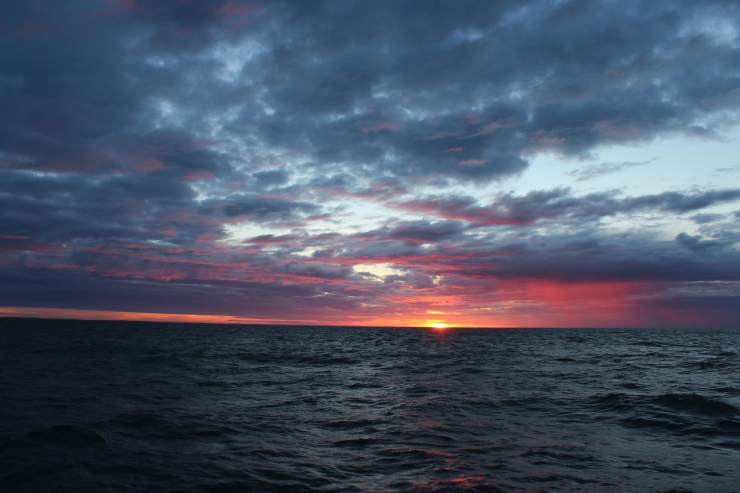
PROS
- Money-Depends on the season, your captain and a host of other things. In theory, you can earn good money.
- Short seasons- Huge plus if you’re looking to stack some cash then travel.
- Learn a new skill set. Maritime skills: navigation, how to tie off a boat, electrical and diesel troubleshooting, hydraulic operation etc.
- The experience- Almost guaranteed to be an adventure.
- See new sights- Sailing through the Aleutian Islands, whales breaching on the open sea at sunrise. Good stuff.
- Bragging rights- Definitely makes your CV more interesting and is likely to help your game at the local watering hole.
CONS
- The work sucks– Big revelation, I know. If being covered in blood and fish slime gets you going, commercial fishing might be right up your alley.
- Confinement- You’ll probably be out on the water for fairly long stretches of time. When the season is on, don’t expect to be off the boat much.
- Crewmates- Roughnecks have always been a part of the maritime industry. Not ideal for extended confinement but definitely ideal for bar-fights and drinking competitions.
- Injuries– High likelihood of getting injured on the job. Plenty of dangerous situations.
- Scams- Although most captains can be trusted at their word, there have been more than a few deckhands work a season and walk away with empty pockets.
- Money- Depending on what vessel you’re on, your pay will likely be based off the amount of fish you’re catching. If it’s a bad season or the boat is constantly broken down, your pay is directly influenced.
Make It A Round Trip
Chances are you’re interested in commercial fishing for adventure or for money; or maybe both. Either way, neither of them matter if you go overboard and drown or get clobbered by a crane hook. If you’re a greenhorn and are looking to land your first site, there’s a slim chance you’ll be landing a job on a crabbing boat which is probably a good thing. Commercial fishing is dangerous and if you’ve never been on a boat before, it takes a minute to gain an awareness of what’s going on around you. That being said, there aren’t elaborate safety protocols to follow; OSHA won’t be inspecting your respirator filters and the only person who can make sure you stay safe is you. That responsibility is yours and yours alone. Common sense and situational awareness are going to be what gets you home at the end of the season. Any injury I sustained while working was because of a lack of the two previously mentioned attributes; so don’t do anything that seems stupid and keep your head in the game.
When and Where To Find Work
The best time for a greenhorn to find work is during the summer salmon season on a tender, gillnetter or purse seiner vessel. I personally looked for work in Cook Inlet in the town of Homer, Alaska and found a site on a Tender in late May, 2016. I asked around looking for a site on a gillnetter or purse seiner and found most of the boats had already crewed up at that time and those that were looking for workers didn’t want to take on a greenhorn. Show up early to mid May for Homer salmon sites.
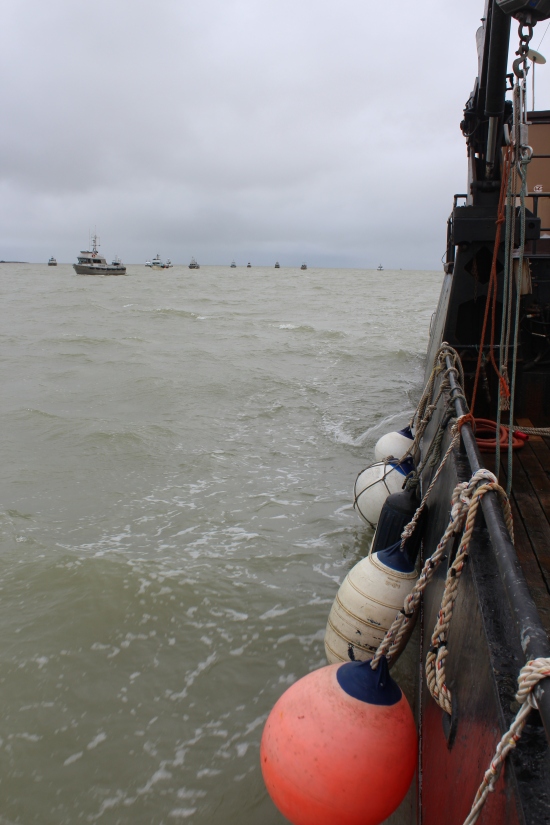
The Kodiak salmon season starts in June. The town of Kodiak is one of the more developed cities in regards to fishing communities. Plenty of bars to blow your money at and there’s actually a few women that reside there so that’s a plus. It’s a large harbor and your chances of finding a site are pretty decent. Kodiak can be hit or miss as the town isn’t focused as much on Salmon as other areas. There are plenty of Purse Seiners working the salmon around Kodiak, so although landing a site may be harder, there are still jobs to be had.
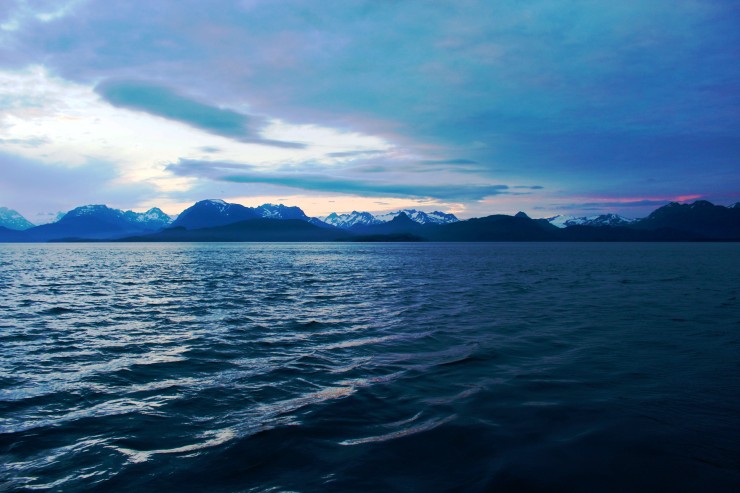
Given that I didn’t experience other fisheries firsthand, I don’t intend to write on them. For information on what seasons begin where, follow this link.
Landing A Job
You get a job in this industry by showing up at the docks and asking people for work. It really is that straightforward. There are other avenues such as online job finders or having a connection through a friend, but I went the traditional route of just showing up and walking the docks. All the deckhands I met had rolled up at the docks and asked for work. It’s pretty simple to do it the traditional way: you network in the bars, post “help for hire” ads at the employment office and public bathrooms, work at the fish processor as a fish pitcher and patrol the docks asking for work multiple times a day.
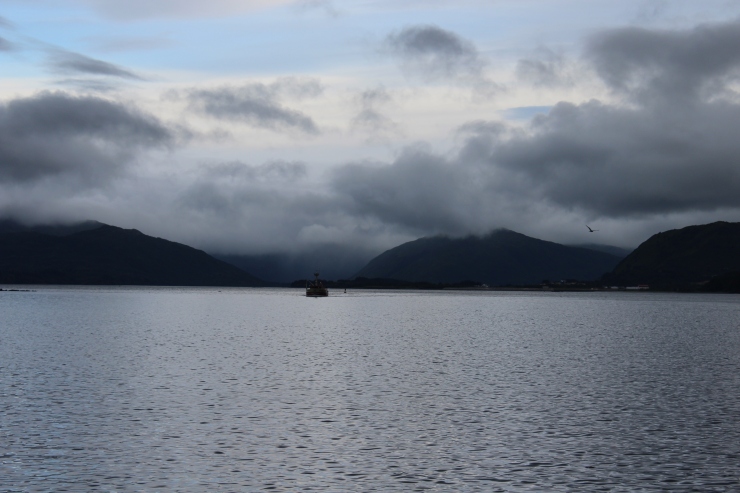
You’ll probably want to bring a tent with you for your initial job search or if possible drive out in a vehicle you can crash in. It will probably take a little while to find something, so don’t get discouraged if you don’t get snatched up on the first day. I went ahead and bought my Commercial Fishing license (about $275 for non Alaskan residents) and a pair of Xtratuff boots. I learned later that my captain would’ve paid for these but that may not be the case with other captains. I honestly think that’s one of the reasons I was hired on, the fact that I showed up ready to roll said good things about me while also saving the skipper money. Best case scenario, have all your gear straightened out from the start and you’ll increase your chances of landing a job.
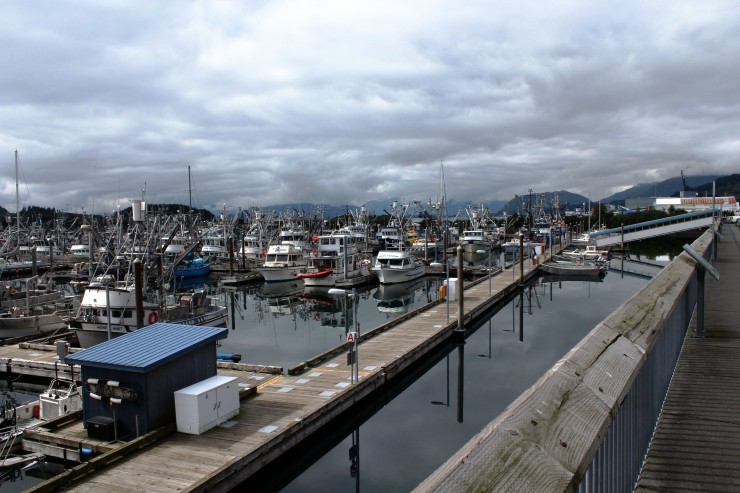
When asking for work, look like you belong on the dock. Wear some work pants, your xtratuffs and a tshirt and you’ll be good to go.You should look confident and competent, regardless of if you possess those attributes. If you do this in the right timeframe, with the right attitude and body language, you’re highly likely to find a site on some kind of boat. You don’t have to be a super alpha guy, but you do need to have an air of self confidence about you. You can increase your chances of getting hired by studying up on electrical troubleshooting, diesel mechanics, hydraulic repair and learning basic knots. Then, when your potential employer asks you if you have experience you can answer, “No, but I’m good with diesel, etc. ” instead of “No, but I’m a hard worker and a fast learner.”
Networking
Given that you enjoy the work and being out on the ocean, make a point to make connections with other mariners, fishermen and captains. Oftentimes this happens at a bar or on the dock, but a random connection could be a good paying gig later down the road. A crewmate of mine would give out free haircuts to crews that he was trying to get hired onto. He recently got hired onto a vessel whose captain’s hair he had cut. Get creative with what you do; hell, the worst they can say is no. Also to be mentioned, it’s not uncommon for skippers to ask you to perform work on their vessel unpaid. You’ll be sanding, painting, needlegunning, caulking etc. Some captains abuse it, but most are giving you a trial period to prove yourself. If you don’t see it going anywhere, move on to greener pastures.
Useful Resources
Lastly, here’s a few websites I found helpful. Hopefully this will get you going in the right direction when searching for work up north. Be safe and good luck.
-
Matador Network How to get Work on an Alaskan Fishing Boat
-
Deckhand Reddit Thread
-
Alaska Fishing Jobs Network Info
All the Best,
-Mike
